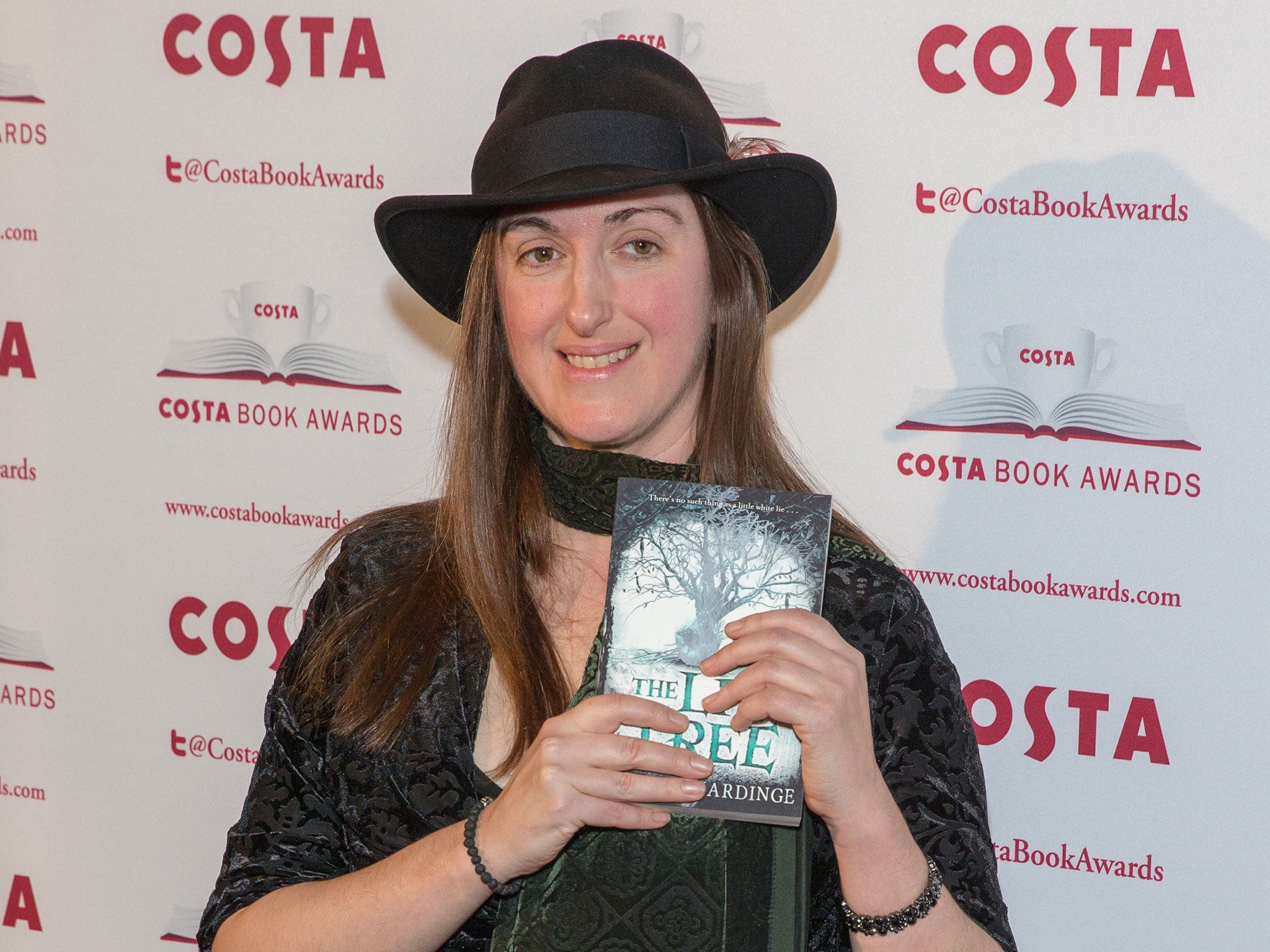Here's hoping this 'moment' for children's fiction leads to a golden age; week in books

A children’s book this week became the Costa Book of the Year. Frances Hardinge, with The Lie Tree, won the prize over Kate Atkinson, Andrew Michael Hurley and all the other front-runners. If this doesn’t sound momentous enough, then even Hardinge looked shocked at the ceremony, admitting that she hadn’t prepared a speech because, as everyone knows, “the children’s book never wins”.
She was almost right. The only other children’s author to have won was Philip Pullman in 2001. Now, Hardinge feels that the genre is having what she calls a “moment”: “It is a fantastic time to be writing children’s fiction and YA [young adult] fiction.”
It is true that the fortunes of children’s and YA books have risen. This is reflected, at its crudest end, in the clamour of celebrities, from Keith Richards to Chris Hoy, writing their own children’s books, but also as overdue acclaim is given to stand-out illustrators like Chris Riddell, who have done so much to make the books so visually thrilling. It hasn’t happened overnight. The moment has been creeping up on us for the past 15 years and has merely reached the doors of Costa now. JK Rowling reminded us that adults could – and do – enjoy children’s stories every bit as much as children; when the first Harry Potter came out, with it came the “crossover fiction” label, invented to legitimise our enjoyment and remove any commuter-reading taboo. Pullman’s books have become part of that vogue. I suspect that The Lie Tree will too. I hope so, at least.
The co-opting of teen fiction by adults is nothing new, either, for the many who read the Twilight series and have been hooked on YA fiction ever since. I am intrigued by how many of my twenty- and thirty-something friends read YA stories. There has been much talk that a new grit and maturity has entered the field; authors are increasingly prepared to tackle subject matter that we, in the past, regarded as too adult: sexuality, depression, eating disorders, death, self-harm.
It hasn’t always been plain sailing for authors who write about these topics, as Kevin Brooks, the Carnegie Medal winner of 2014, reminded us; it took him a 10-year publishing search to get The Bunker Diary out there, because no one wanted to touch a YA book about kidnap, torture, and drug addiction that, apparently, didn’t offer enough “hope”. Maybe we think children can’t take bleakness, when they can.
Hardinge’s book has feminist, horror and gothic elements. Is she part of a new wave? I am not so sure, when we have had the likes of Pullman and Patrick Ness, who have long been writing darkness, most brilliantly, for kids. And look further back to find Grimms’ Tales for gothic horror, blood, butchery and violent endings. The modern invention here might be the artificial barriers we have raised around subjects of “adult” and “non-adult” fiction, with some grey area left for the crossover. The division between what we read as children, teenagers and as adults can be far less clear-cut. What, for example, makes JD Salinger’s The Catcher in the Rye an adult classic? Isn’t it a YA classic, read by YAs and revisited by adults?
That this is the same week that an unseen Beatrix Potter book, Kitty in Boots, was discovered, and the same year as Roald Dahl’s centenary, makes it all the more appropriate for this moment to happen.
I hope it is the moment when the floodgates are opened; when we welcome, commercially, a golden era for children’s literature in terms of publishing commissions, and critical engagement. Hardinge’s victory should make us all think, literary editors included! Despite the shrinking coverage of books pages in newspapers, the reviewing of children’s books ought not to be our first or biggest sacrifice. Booksellers might think twice too, about their neat but artificial delineations of adult fiction in this corner, and children’s fiction in that. And, of course, readers might think twice, too.
Subscribe to Independent Premium to bookmark this article
Want to bookmark your favourite articles and stories to read or reference later? Start your Independent Premium subscription today.

Join our commenting forum
Join thought-provoking conversations, follow other Independent readers and see their replies